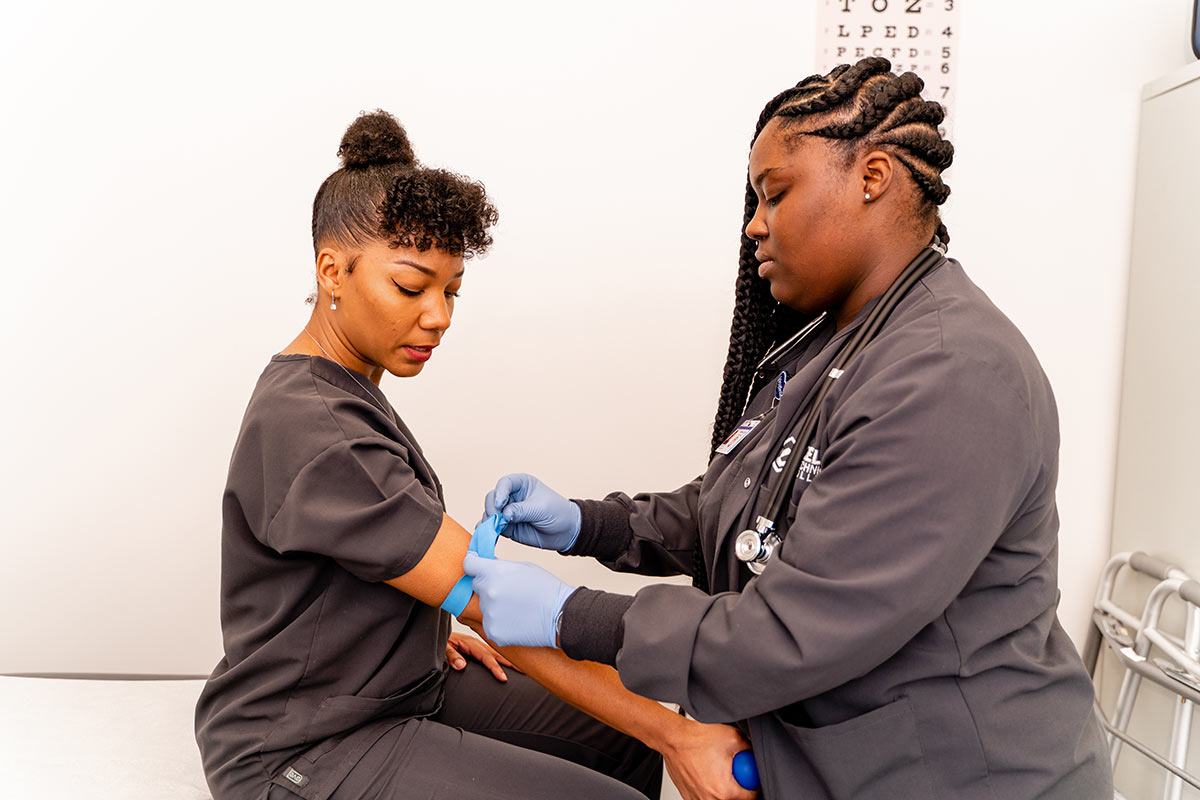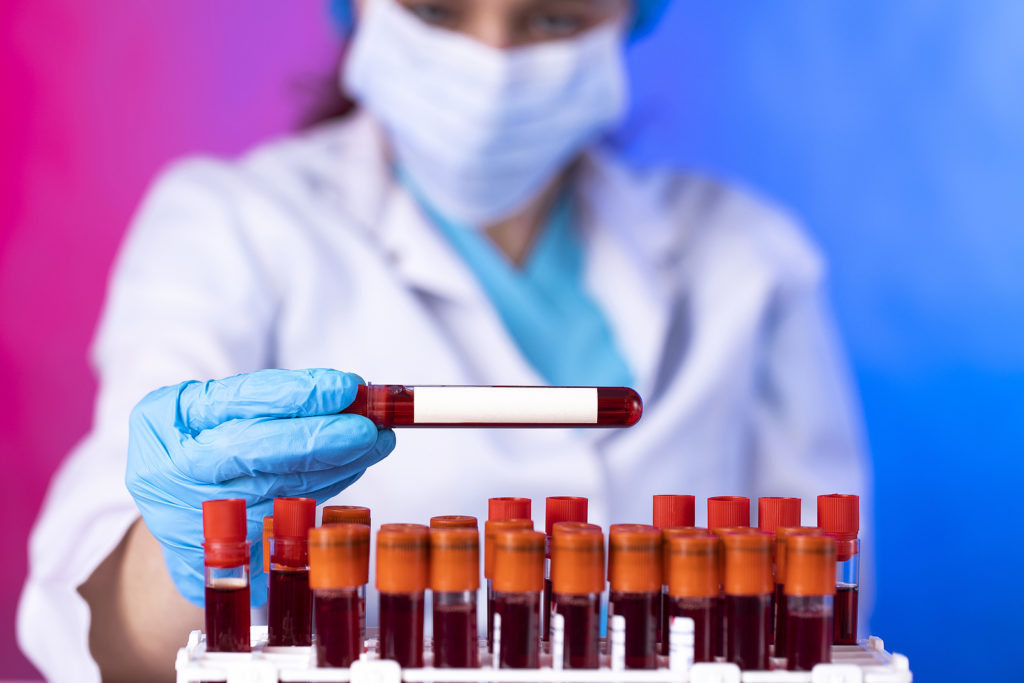The Course to Qualification: Understanding the Phlebotomy Training Program Journey and Its Value
As you take into consideration the course to certification in phlebotomy, it's crucial to recognize the duty you'll play in health care. Your training will cover necessary abilities, from blood collection strategies to patient interaction. Each element of the program prepares you for the difficulties ahead. But exactly what does the journey involve, and why is accreditation so important for your future job? Let's explore these concerns better.

The Role of Phlebotomists in Health Care
Phlebotomists play a vital role in the health care system, working as the essential link in between patients and necessary diagnostic screening. You'll perform blood attracts, ensuring examples are collected properly and safely. Your expertise assists in diagnosing medical problems, checking health and wellness, and assisting therapy decisions.
In your day-to-day interactions, you'll need to develop trust with clients, making them really feel comfy during what could be a stressful experience. You are in charge of classifying and dealing with samples meticulously to stop contamination or errors, which can affect examination outcomes.
Beyond this, you'll typically function together with physicians and registered nurses, connecting essential details regarding clients' problems. By understanding your abilities, you add meaningfully to individual treatment, making you a crucial component of the clinical group.
Summary of Phlebotomy Training Programs
When exploring phlebotomy training programs, you'll locate various types made to fit different schedules and finding out styles. Each program helps you establish crucial abilities like blood collection and patient communication. Comprehending these alternatives is vital to choosing the ideal path for your occupation.
Sorts Of Training Programs
Numerous sorts of training programs are readily available for those wanting to come to be proficient in phlebotomy. You can pick from certificate programs, which typically last a few months and focus on necessary skills. There are additionally diploma programs that offer an even more extensive education, usually lasting approximately a year. If you're trying to find a much deeper understanding, an associate degree in a related field could be the best fit. On the internet courses provide adaptability for those balancing work or family members commitments, enabling you to examine at your very own rate. Furthermore, some hospitals and facilities offer on-the-job training programs, providing sensible experience while you learn. Whatever path you select, each program intends to furnish you with the needed abilities for a successful phlebotomy occupation.

Trick Skills Established
Understanding phlebotomy calls for a set of key skills that are created via comprehensive training programs. Furthermore, interaction skills are basic; you'll need to communicate with individuals, clarify procedures, and put them at ease. Each of these skills is crucial for your success as a certified phlebotomist, making you an important property in any type of medical care setting.
Secret Parts of a Phlebotomy Training Course
In a phlebotomy course, you'll focus on necessary subjects that lay the foundation for your future profession. You'll involve in hands-on training that enables you to apply what you have actually learned in real-world settings. Both the core educational program and useful experience are vital for your success as a phlebotomist.
Core Curriculum Review
While going after a phlebotomy training program, you'll run into a curriculum made to furnish you with essential abilities and expertise. Phlebotomy Courses Near Me. This educational program commonly includes composition and physiology, concentrating on the blood circulation system and comprehending blood parts. You'll additionally find out about various kinds of blood collection techniques, including venipuncture and capillary slit strategies
In addition, infection control and safety procedures are essential components, ensuring you understand exactly how to preserve a clean and sterile environment. You'll examine patient communication, highlighting communication and compassion, which are essential for alleviating patient stress and anxiety.
Hands-On Training Experience
Getting hands-on experience is an indispensable component of your phlebotomy training program. This useful training enables you to use what you've learned in a real-world setting, boosting your skills and confidence. Phlebotomy Classes Near Me.
Furthermore, you'll get the chance to engage with patients, which is important for creating your interaction abilities. This mix of technological efficiency and social abilities is essential for your success as a licensed phlebotomist. Ultimately, hands-on training is where theory meets method, solidifying your understanding and readiness for accreditation.
Qualification and Licensing Needs
Before you can start your career in phlebotomy, it is essential to recognize the certification and licensing needs that differ by state. Most states call for phlebotomists to hold a certification from an identified organization, such as the National Phlebotomy Organization or the American Culture for Medical Pathology. These accreditations usually involve passing a test that examines your knowledge and abilities in the field.
In enhancement to qualification, some states have certain licensing needs. You might require to look at this site complete a particular variety of hours in clinical method, submit proof of training, or undertake a background check. It is essential to research your state's policies to ensure you fulfill all essential criteria.
Remaining notified concerning these needs not just assists you secure a position however likewise enhances your reputation as an expert. By satisfying these demands, you'll be well on your means to an effective occupation in phlebotomy.
Hands-On Training and Practical Experience
Hands-on training and useful experience are vital parts of your phlebotomy education, as they permit you to use theoretical understanding in real-world scenarios. Throughout your training, you'll engage in supervised venipuncture, find out proper strategies, and come to be accustomed to various blood collection devices. This straight involvement is important for building your confidence and honing your skills.
You'll work carefully with knowledgeable experts that can guide you with the subtleties of you can find out more client communication and example handling. Each session not just enhances your understanding yet additionally prepares you for the busy setting of health care settings.
Additionally, many programs integrate scientific rotations, permitting you to experience diverse settings, from hospitals to outpatient clinics. This exposure helps you adapt to different obstacles and patient needs, guaranteeing you're well-prepared for your future role. Accept these possibilities, as they're vital to ending up being a proficient and thoughtful phlebotomist.
Difficulties Encountered Throughout Training
While gaining hands-on experience is important, it's vital to recognize the obstacles that can develop during your phlebotomy training. You might experience stress and anxiety when carrying out procedures on genuine patients, specifically if you're brand-new to the environment. The stress to get everything right can be frustrating. Furthermore, mastering the abilities needed for blood draws takes practice; you might battle with method at first.
Time administration can additionally be a hurdle, as balancing theory, practical sessions, and personal dedications can really feel challenging. You might encounter differing learning paces amongst your peers, bring about sensations of self-doubt if you assume you're falling back. Ultimately, adapting to the check over here various personalities of instructors can be difficult, as each might have a distinct teaching design.
Recognizing these barriers early can prepare you for success and help you establish strength throughout your training trip.
Occupation Opportunities After Qualification

As you gain experience, you could even consider focusing on areas like pediatric or senior citizen phlebotomy, accommodating certain individual needs. Some phlebotomists select to advance their jobs by becoming laboratory specialists or seeking additional education and learning in medical care areas.
Furthermore, your qualification can lead to roles in training or overseeing brand-new phlebotomists, permitting you to share your knowledge. With the medical care sector continuously growing, your skills will certainly constantly be in demand, leading the way for a steady and meeting profession. Accept the chances awaiting you!
Frequently Asked Concerns
What Is the Common Duration of a Phlebotomy Training Training Course?
Phlebotomy training courses typically last around four to eight weeks. You'll take part in hands-on method, classroom direction, and on the internet understanding. Finishing this training prepares you for qualification and a rewarding career in healthcare.
Are Online Phlebotomy Courses Available?
Yes, online phlebotomy courses are available. They provide flexibility and convenience, enabling you to examine at your very own speed. Just verify the program is accredited to meet certification needs and obtain beneficial abilities for your occupation.
Just How Much Does Phlebotomy Training Normally Cost?
Phlebotomy training generally costs in between $700 and $2,500, relying on the program and place. You ought to consider variables like training course size, included materials, and hands-on experience when picking the ideal training for you.
What Are Common Requirements for Phlebotomy Training?
Typical requirements for phlebotomy training typically include a high college diploma or GED, immunizations, and a history check. Some programs may additionally need standard health care expertise or accreditations, ensuring you're gotten ready for hands-on training.
Can I Function While Completing My Phlebotomy Training?
Yes, you can function while completing your phlebotomy training. Lots of students balance work with their research studies, yet ensure to handle your time effectively to ensure you meet both work and training dedications successfully.